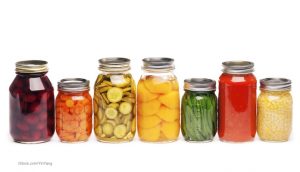In the state of California, as of Tuesday, January 1, 2013, food can legally be produced in home kitchens and sold to consumers. The Homemade Food Act was passed and signed into law in September 2012. Those foods, commonly known as “cottage foods”, are illegal to make and sell in many states.
 Only so-called “low risk” foods are allowed under the new law. They include baked goods, desserts, nuts, candies, and jams and jellies. The California Department of Public Health will oversee the new regulations and will provide food processor training, which anyone who wants to sell food from their home is required to take. All CFOS must obtain approval from local planning departments.
Only so-called “low risk” foods are allowed under the new law. They include baked goods, desserts, nuts, candies, and jams and jellies. The California Department of Public Health will oversee the new regulations and will provide food processor training, which anyone who wants to sell food from their home is required to take. All CFOS must obtain approval from local planning departments.
Class A CFOs sell directly to consumers, while Class B CFOs can sell to third-party retailers, which then sell to consumers. Class A CFO kitchens and food storage areas are not subject to inspections, but Class B CFO kitchens are inspected before the permit is issued, and yearly thereafter. If complaints are levied against a cottage food organization, the Environmental Health Agency may inspect the kitchen.
The California Conference of Directors of Environmental Health have posted a list of frequently asked questions about the new law and Cottage Food Operations (CFOs). There are limitations on the amount of a CFO’s yearly sales, ranging from $35,000 or less in gross sales in 2013 to $50,000 or less in gross sales in 2015 and beyond. Some of the foods permitted under the new law include baked goods without cream, custard, or meat fillings; candy, chocolate covered nonperishable foods, granolas, fruit pies, nut butters, popcorn, vinegar, mustard, dry baking mixes, and dried fruit.
There is a long list of operational requirements, which includes no infants or pets in the kitchen during food preparation, no smoking in the kitchen area, and proper hand washing before food preparation. In addition, CFOs must comply with food labeling requirements on everything produced in the home kitchen.




